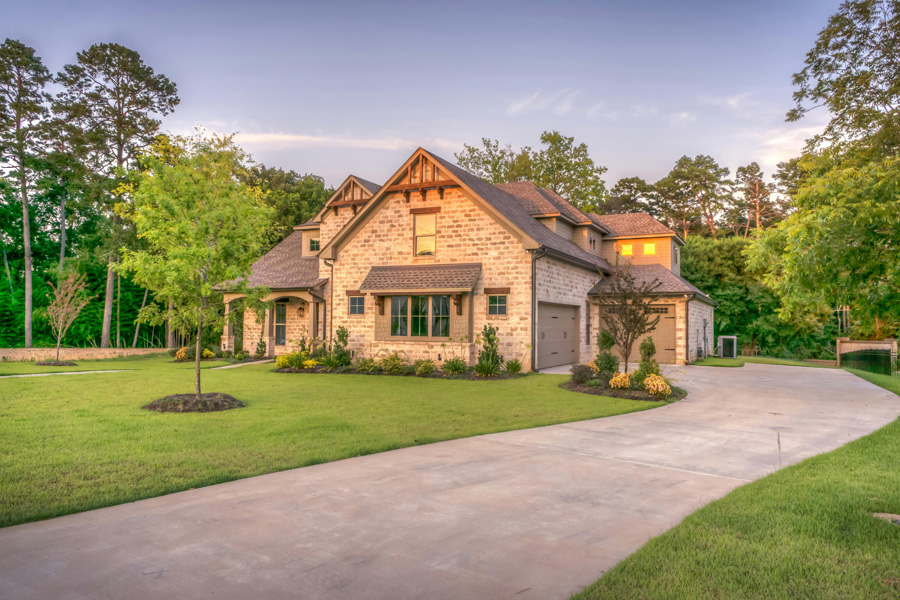Falling in love with a home happens easily—the charming porch, the sunlight through the kitchen window, or the spacious backyard can make anyone eager to sign on the dotted line. But before emotions take over, it’s essential to look beyond appearances. A skilled real estate agent can help buyers dig deeper into the details that truly define a property’s value and livability. Buying a home is one of the biggest financial decisions in life, and ensuring every system and structure is in good condition protects that investment. A smart buyer knows that due diligence today prevents disappointment tomorrow.
Foundation and Structure: The True Base of a Home
The foundation supports everything above it. Cracks, uneven floors, or doors that stick can hint at deeper structural issues that may become costly if ignored. Before falling for a property’s charm, check for signs of shifting, moisture, or previous repairs. A professional home inspector can identify potential red flags, but it’s wise for buyers to do an initial visual check as well. Stable foundations not only ensure safety but also affect long-term property value and insurance eligibility.
Roofing is another crucial structural element that often hides problems in plain sight. Missing shingles, sagging areas, or signs of previous leaks should never be overlooked. Water damage from a failing roof can extend into walls, insulation, and ceilings, creating expensive repairs later. A good real estate agent will remind buyers to ask how old the roof is and whether it has been replaced or maintained recently. These small questions can prevent big surprises.
Plumbing, Electrical, and HVAC Systems
A home’s comfort depends heavily on what lies behind the walls. Plumbing and electrical systems should always be part of a buyer’s checklist. Outdated wiring, leaky pipes, or low water pressure can signal that expensive updates are due. Checking for copper plumbing, grounded outlets, and a modern electrical panel helps ensure the home meets current safety standards. Functional systems make the difference between a cozy home and a constant repair project.
The HVAC system plays an equally important role in long-term comfort and efficiency. Buyers should find out the system’s age, maintenance history, and energy rating. Poorly maintained HVAC equipment can lead to high utility bills and uneven heating or cooling throughout the home. Inspecting vents and filters during viewings can also reveal how well the system has been cared for. A reliable HVAC system adds value and peace of mind, making it a must-check feature before purchase.
Windows, Doors, and Insulation
While often admired for aesthetics, windows and doors also have a practical purpose: insulation and security. Drafty windows or warped doors may seem like small issues, but can quickly translate into higher heating and cooling costs. Replacing or resealing them ensures energy efficiency and prevents moisture from entering the home. During a walkthrough, look for condensation between glass panes or difficulty opening frames—both signs of potential replacement needs.
Insulation is another unseen yet vital factor in a home’s performance. Attics, walls, and basements should be checked for proper insulation coverage and ventilation. Poor insulation leads to temperature imbalances, humidity problems, and even mould growth. A knowledgeable real estate agent can help buyers request energy audits or identify homes that already meet high efficiency standards. Investing in an energy-efficient home saves money and supports sustainable living over time.

The Surroundings Matter Too
A home’s condition extends beyond its four walls. The property’s drainage, grading, and landscaping all impact its durability and comfort. Improper water flow can cause pooling near the foundation, leading to basement leaks or soil erosion. Checking the direction of water runoff, the state of gutters, and whether a sump pump is installed can prevent future water-related issues. These outdoor checks are often overlooked but play a critical role in long-term maintenance.
Noise levels, proximity to amenities, and even local zoning can also influence a home’s appeal. Buyers should visit the property at different times of the day to assess traffic, light, and neighbourhood activity. Observing the surroundings provides insight into lifestyle fit and potential resale value. A real estate agent familiar with the area can offer valuable context that goes beyond what online listings reveal.
Documentation and Disclosures
Before committing, reviewing the paperwork is just as important as touring the property. Sellers are legally required to disclose known defects, but buyers should always verify these details independently. Past permits, renovations, and inspection records can shed light on the home’s history. Ensuring that all additions comply with building codes avoids future legal and financial complications.
Title searches and property surveys confirm boundaries and ownership rights. These steps, often handled with the guidance of a real estate agent and lawyer, ensure that there are no hidden disputes or encumbrances. It’s this blend of due diligence and professional insight that keeps the buying process smooth and secure. The goal is to close on a property with confidence, not second guesses.
Budget Beyond the Purchase Price
Owning a home involves more than the down payment and mortgage. Property taxes, insurance, and routine maintenance must all be factored into the budget. Setting aside a financial cushion for unexpected repairs ensures that small issues don’t become financial burdens. Understanding these costs helps buyers avoid being “house poor” after moving in.
A realistic budget also creates opportunities for upgrades that enhance value, such as energy-efficient windows or new roofing. A savvy real estate agent can help estimate average costs for upkeep in different neighbourhoods. This knowledge allows buyers to make informed choices without overstretching financially. Being prepared makes homeownership rewarding rather than stressful.
The Smart Choice Is the Informed Choice
A beautiful home can win hearts, but a well-informed decision secures futures. A thorough evaluation—guided by an experienced real estate agent—ensures that excitement is balanced with practicality. From the foundation to the HVAC system, every detail contributes to the property’s long-term comfort, safety, and value. By asking the right questions and looking beyond appearances, buyers protect their investment and enjoy peace of mind. After all, the smartest purchase is one made with both confidence and clarity.









